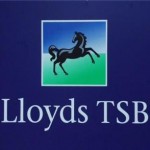GBP/USD broke out from a relatively tight area of consolidation to reach new lows unseen since July 1985 on Tuesday, as Bank of Englands Financial Stability Report, released earlier, outlined risks of lower capital inflows. The central bank relaxed rules for lending institutions, so that they could cope with Brexit effects. BoE said it would reduce the amount of capital, that banks need to keep in reserve, which would free up an additional GBP 150 billion.
Meanwhile, BoE Governor, Mark Carney, said the decision reflected a “major change”, which would facilitate weathering the Brexit effects. “It means that three quarters of UK banks, accounting for 90 percent of the stock of UK lending, will immediately have greater flexibility to supply credit to UK households and firms”, Carney said, cited by Reuters.
In early US trade GBP/USD plunged 1.66% to hit an intraday low of 1.3066, overshooting the weekly S1 pivot (1.3068).
In terms of fundamentals, activity in United Kingdoms services sector was reported to have expanded at the slowest rate since April this year in June, when the respective gauge hit a 38-month low. The Services PMI slumped to 52.3 last month, down from a reading of 53.5 in May, while the market consensus pointed to a lesser slowdown – to 52.7. According to Markit/CIPS, the volume of new business expanded at a slightly higher rate, but yet , it has been the second-weakest growth since economic recovery began 3.5 years ago. In June, employment in UK services continued to increase, but moderated to the slowest since August 2013, while the gauge of business expectations registered its lowest level since December 2012. The report raised concerns that UK economic growth probably slowed in Q2 this year.
For a second straight trading day on July 5th, EUR/USD kept holding in a range between the 38.2% (1.1108) and 50.0% (1.1169) Fibonacci levels, which reflect the sharp descent from June 24th high to June 24th low. A break above the current intraday high (1.1185) may challenge 1.1215 (the weekly R1 pivot) and then – the 61.8% Fibonacci (1.1229).
The common currency showed a somewhat muted reaction to macroeconomic data, that came out earlier Tuesday. Euro areas final Composite Purchasing Managers Index was reported to have advanced to 53.1 in June from a preliminary reading of 52.8, while matching the final reading from May. Manufacturing activity expanded at the fastest pace so far in 2016, with the respective PMI coming in at 52.8. Euro areas services, on the other hand, grew at the slowest rate in almost 1.5 years, with the respective PMI being at a level of 52.8.





